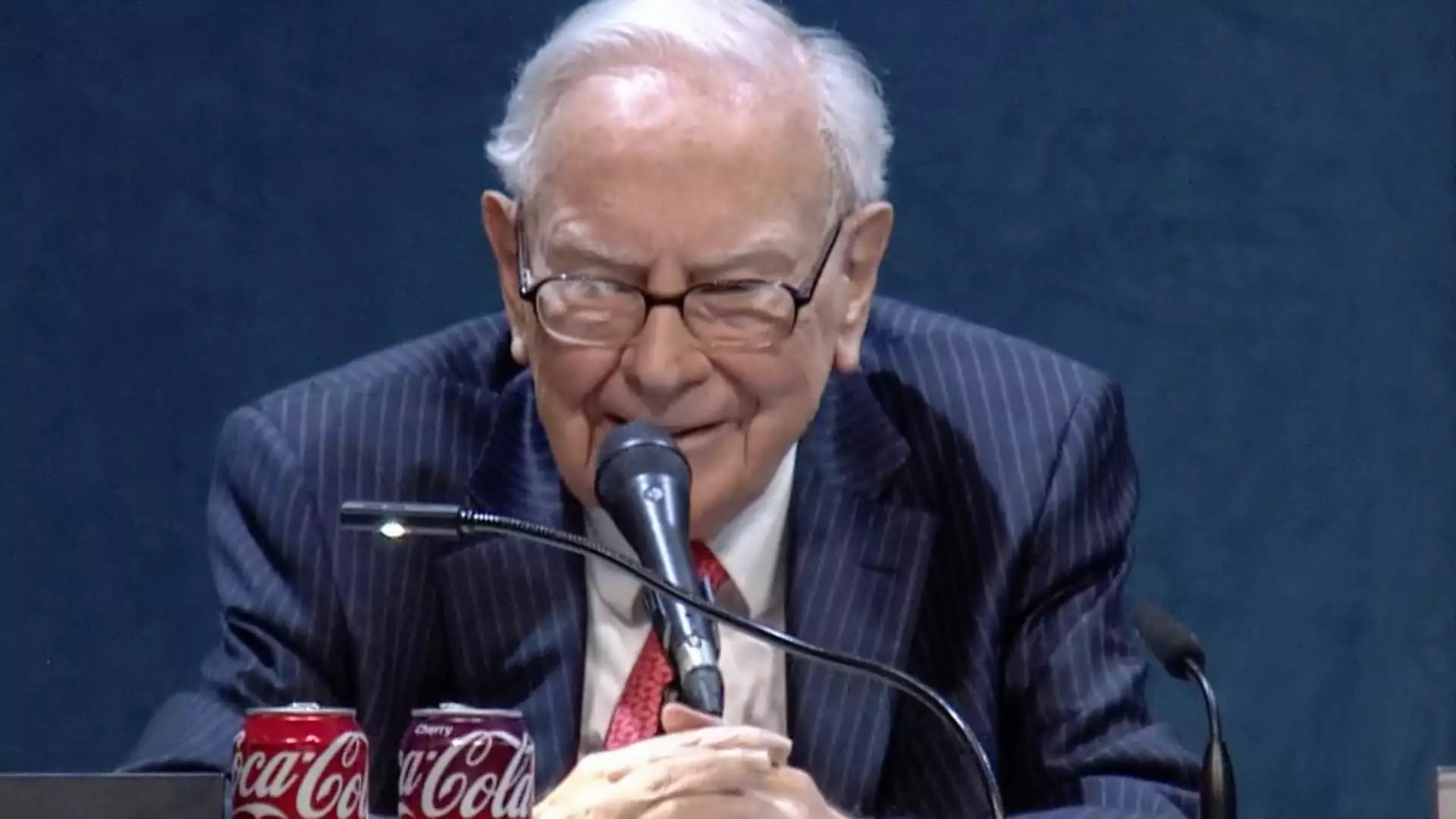Warren Buffett, a name synonymous with investment success, has recently navigated through turbulent waters with his conglomerate, Berkshire Hathaway. The firm reported a disturbing 14% drop in operating earnings for the first quarter of the year, amassing $9.64 billion, down from the previous year’s $11.22 billion. For a company of this magnitude—one that owns diverse sectors ranging from insurance to transportation—such a decline raises alarms not just about its financial health, but also about the broader economic climate. It’s disheartening to see even the most stable houses showing cracks.
This decline is accentuated by the turmoil surrounding U.S. tariffs and geopolitical uncertainties. Buffett’s annual meeting symbolizes collective anticipation, but the latest figures paint a rather grim picture. The profitability of companies nestled within Berkshire’s expansive portfolio hangs in the balance. A striking statistic illustrates the breadth of this challenge; Berkshire’s insurance-underwriting profits fell precipitously by nearly 49%. Blame it on the wildfires in Southern California, which racked up a staggering $1.1 billion loss. This is more than just an unfortunate turn of events; it suggests a company that may be losing its grip on risk management in the face of escalating environmental catastrophes.
Currency Fluctuations and External Pressures
It’s not just the immediate losses that are concerning; the external pressures on Berkshire Hathaway also loom large. The company reported a $713 million loss tied to foreign exchange rate declines—a stark contrast to the previous year where it basked in a $597 million gain. The dollar’s value dipped nearly 4% during this period, leading many to question how this financial titan can stand resilient amidst global currency fluctuations. The rug is being pulled from under them, and the repercussions reverberate throughout its intricate business fabric.
Buffett openly admits that predicting the impact of tariffs and other geopolitical factors has become increasingly challenging. His candid acknowledgment reveals a vulnerability that is often masked by his legendary reputation. Investors, both seasoned and novices, should begin to reconsider the stoic façade of Berkshire Hathaway. With fluctuations and tariffs reshaping industries, uncertainty is creeping into what was once a fortress of stability. The phrase, “You can’t predict the future,” might be a comforting mantra in the investment world, but with each passing quarter, that future appears bleaker.
Cash Reserves: A Double-Edged Sword
Berkshire has amassed an impressive cash hoard of over $347 billion, a record high that could be seen as a safe haven amidst the storm. However, one must question the strategy behind this decision: Why did Buffett choose to remain inactive, particularly when market prices dipped? This approach signals a sense of caution rather than confidence. Simply stockpiling cash during tumultuous times may indicate hesitance to capitalize on what appear to be favorable purchasing opportunities. Instead of being proactive, the company has opted for a defensive strategy, selling off stocks for the tenth consecutive quarter.
While Berkshire advocates for investors to look beyond quarterly changes, the glaring drop illustrated by a nearly 64% plunge in overall earnings year-over-year suggests that many are struggling to keep the faith. Lessons in accounting may reign supreme in Berkshire’s literature, but for the average investor, the bleak financials are hard to overlook. The common wisdom of ignoring short-term fluctuations seems less relevant as long-term trends point toward an unsettling trajectory.
Reflection on a Shifting Investment Landscape
Buffett must grapple with the consequences of a rapidly transforming market. The allure of steady growth that Berkshire Hathaway represented is now shadowed by realities that neither depend solely on its reputation nor its past successes. The broader market sentiment fluctuates in response to economic policies and global tendencies, and Buffett’s empire must now adapt to these changing winds.
With Class A shares reportedly up nearly 19%, outperforming an overall S&P 500 that has declined, it’s tempting for some to write off the recent earnings slumps as mere noise. Yet, the facts tell a more nuanced story filled with pitfalls. Navigating this complex landscape will require more than just Buffett’s oft-quoted wisdom; it demands a reinvigorated strategy that meets today’s challenges head-on. As the currents shift and the environment changes, the resilience of Berkshire Hathaway—and indeed, the legacy of Warren Buffett—will be put to the test.

